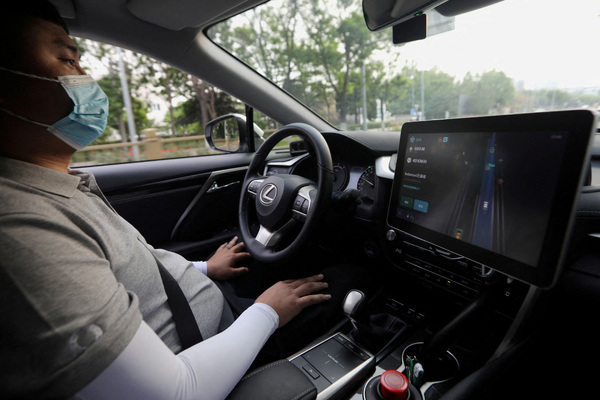It’s good to share: why data standardisation is key to improving mobility

Technology now exists for us to create more sustainable cities that more effectively meet the needs of happier and healthier residents through reduced congestion and carbon emissions.
Unfortunately, while the multimodal mobility-as-a-service (MaaS) and EV infrastructure that could achieve this is being actively promoted by cities and public authorities, all too often the data underpinning these technologies remains siloed, which is holding back the true potential of more efficient, sustainable transport.
We shouldn’t be entirely surprised by this challenge – data in this sector is abundant, multi-layered, and complex, with information about users, transport infrastructure and transit systems overlapping to create myriad streams.
What’s more, when it comes to accessing this data, there are multiple standards and interfaces. How data can be used depends on who holds which data set, what standards and regulations are adhered to, and which data is open or closed. And private-sector businesses are less willing to share data because of business sensitivity, while the public sector might be concerned about privacy obligations. Add to this the need for co-operation between the private and public sectors, and the complexity deepens.
These are, however, challenges that can and should be solved. A better approach to data – ensuring that it is standardised and shared freely within the industry – can play a crucial role in the creation of more sustainable cities.
This is something we can say with confidence because of the many excellent examples of progress being made across the globe.
International data-sharing progress
In the UK, the Bus Open Data Service (BODS) became a world first in 2020, when it required operators to supply timetable, fare and real-time bus location data in a standardised format, ensuring most bus locations and ETAs can be tracked across the country.
This year, the UK’s Department for Transport (DfT) expanded this with the launch of its Transport Data Strategy, which has been designed to improve data-sharing across all modes of transport. It will make it easier for operators and local authorities to find and track the data they need for better decision-making, as well as make transport information more readily available to passengers. Ultimately – and here’s the enormous potential – gathering and digesting data in an actionable format will promote increased use of public transport services through the power of more trusted information.
Meanwhile, in Hong Kong, the Intermodal Transport Data Sharing Program has demonstrated the potential of integrating transport datasets from different operators and modes of transport, despite the limited amount of data that was available. A report published at the conclusion of the program found that “sharing of the full dataset provides potential not only for academic research but also for better services planning and co-ordination across different public transit operators”.
Additionally, Finland has invited mobility operators to design, develop and manage MaaS projects, tasking them with integrating several transport modes by utilising and combining the interfaces of travel schedules, location data and payment systems of multiple transport services. This was supported by the country adopting new legislation to enable MaaS and promote competition within the passenger transport market.
Another example of progress in the Nordics is Copenhagen integrating shared bike transport data into its multimodal journey planner, MinRejseplan (My Journey Planner). The mobile application suggests the fastest routes with consideration of real-time bicycle availability, location, and traffic conditions, and has been positively supported since its inception.
The value of collaboration
These international examples of a superior and more sustainable public transport offering – underpinned by shared and standardised data – underline the power of collaboration.
This will remain innately important to creating more successful multimodal transport because different operators and agencies need to work with multiple vendors and use data from different sources.
In some instances this will take place in response to government legislation. For example, the Finnish government’s Act on Transport Services ensures that “essential data on transport services can be made open” and pioneering MaaS businesses in the country have indeed shown the value of prioritising open ecosystems. Equally, the European Commission envisages a European Digital Transformation by 2030, which aims to promote interoperability and bring 100 per cent of public services online.
Even without government intervention, forward-thinking businesses are recognising the value that can be created by collaborating – both with each other and with the public sector – to unlock the true potential of new technology and create more sustainable cities.
In North America, four leading micro-mobility businesses have combined their collective experience in hundreds of cities worldwide to produce guidance on how to establish and manage e-bike and e-scooter programs successfully. The CEOs of Bird, Lime, Spin and Superpedestrian believe that by joining forces, the integration of these recommendations into city policies and regulations will contribute to the continued success and expansion of shared e-bikes and e-scooters, offering residents safe, affordable and sustainable transportation options.
Working in partnership
Snapper Services and Vix Technology have long been close collaborators on data-driven intelligent transport systems. In fact, Vix and Snapper have joined forces in a truly collaborative partnership that sees Snapper’s Mosaiq tools available with Vix’s comprehensive Beacon ITS platform in the UK market. Beacon makes use of data across the full solution, from computer-aided dispatch and automatic vehicle location (CAD/AVL) capability to fleet management to Mosaiq’s data-driven insights.
Together, we’ve worked with the West Yorkshire Combined Authority (WYCA) in the UK to provide data-enabled insights into bus services, which also allows the easy exchange of data both within the authority and with the South Yorkshire Authority.
In Northern Ireland, we have supported Translink in becoming a data-driven organisation, ensuring the company can monitor the performance and reliability of routes and ensure customer information is accurate and robust. This also supports Translink in confidently meeting the reporting requirements that have been set by the DfT.
To build on this significant progress, we simply need enough businesses to recognise that a more sustainable future for everyone is desirable and achievable – and that all parties can benefit from a more collaborative approach.
The success of pilot projects across the globe confirms that data standardisation – and being open to sharing this data – can shape the future of a public transport system that supports the creation of more sustainable, healthier and happier cities.
To learn more about how Snapper’s tools can create complete operational visibility, click here.
To find out more about Vix Intelligent Transportation Systems, click here.
by Miki Szikszai, CEO, Snapper Services

Miki Szikszai has served as CEO of Snapper Services since February 2009. Miki has over 25 years of experience in developing and commercialising innovation for the benefit of customers. He also serves as a Board member at B2B SaaS companies Spotlight Reporting (Independent Director) and vWork (Chair).
Snapper’s first services were in New Zealand, with an ambition for positive global impact. Snapper has since proven itself as a trusted service provider in the UK and EU region for almost a decade. With Mosaiq, Snapper is improving public transit data quality to drive high-performing transit networks.

Business Reporter Team
You may also like
Most Viewed
Winston House, 3rd Floor, Units 306-309, 2-4 Dollis Park, London, N3 1HF
23-29 Hendon Lane, London, N3 1RT
020 8349 4363
© 2025, Lyonsdown Limited. Business Reporter® is a registered trademark of Lyonsdown Ltd. VAT registration number: 830519543



